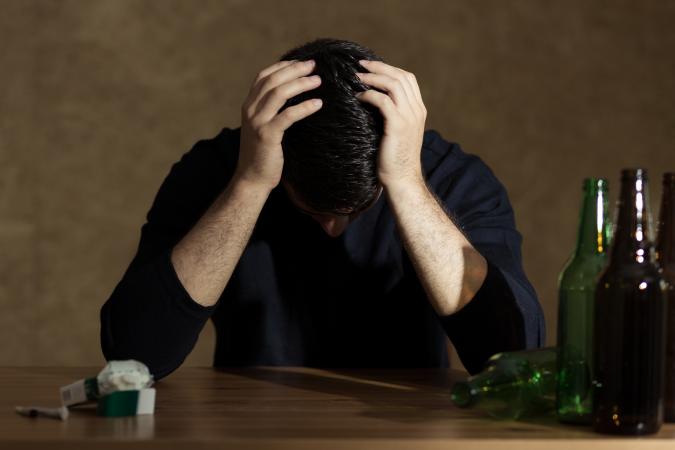The alcohol detox treatment journey is tough, and withdrawal, alone, can create difficult barriers. If you’re battling alcoholism, you’ve likely dealt with acute withdrawal symptoms. While short-term withdrawal is often fierce and dangerous—warranting an ER visit—prolonged withdrawal can be combated in several ways. The alcohol detox timeline doesn’t end when assistance begins, and the best way to detox from alcohol is to have a proactive mindset about withdrawal care.

Below are ten powerful tips we feel you should know for overcoming withdrawal—both in the short and long run.
Tip One: Take Melatonin
During prolonged withdrawal, it’ll be difficult to sleep. That said, over-the-counter sleep aids may negatively impact your ability to sleep further. Melatonin, however, is natural. It won’t cause sleepiness, but it’ll certainly assist with sleep cycle regulation.
Tip Two: Taper Off
While you’re probably already undergoing the alcohol detox timeline with professional care, you should understand the importance of tapering off of a substance. If you want to detox alcohol, you’ll need to understand the way your body requires it, at some level. Experts suggest cutting alcohol consumption in half repeatedly if prolonged withdrawal occurs—and if quitting immediately isn’t an option. In doing so, you can reduce alcohol withdrawal symptoms greatly while acquiring professional supervision.
Tip Three: Drink Water
This tip can’t be overstated. Water, alone, will offer incredible aid when combating withdrawal. Staying well-hydrated keeps both the mind and body flushed out, reducing impurities while stabilizing dark withdrawal periods.
Tip Four: Reduce Temptations
Experts believe temptation reduction is a key component of withdrawal recovery. During withdrawal, you’ll likely suffer from a severe mental “need” to consume more alcohol. By removing alcoholic beverages from your accessibility, you’ll effectively remove this stimulus. That said, you’ll need to be proactive about this. Don’t cut corners, and don’t allow your brain to make excuses for future drinks.
Tip Five: Take Imodium
What food you’re able to get down will pass through your system quickly if you’re suffering from withdrawal. Imodium, however, can combat this. If you don’t currently have any Imodium, you can purchase it from your nearest pharmacy. If possible, select Imodium AD, which is Loperamide Hydrochloride. By keeping your body fully stocked on Imodium, you can reduce the stomach strain during prolonged detox periods.
Tip Six: Consume Zinc and Vitamin B1
A body undergoing alcohol withdrawal will be deprived of zinc and vitamin B1. While a medical professional should advise your nutrient consumption, you can always consume a multivitamin. Reduce your junk food intake, and consume healthy fruits and vegetables to resupply your body with vital vitamins. Meat and fish, too, should be major parts of your diet.
Tip Seven: Quit Caffeine
Take caffeine off your diet, as it’s been known to worsen withdrawal symptoms. Caffeine directly impacts the body’s blood sugar levels—which are already damaged by alcohol abuse. Like alcohol, caffeine can be tapered off. Fortunately, the recovery time for caffeine is a lot quicker than alcohol.
Tip Eight: Don’t Forget to Relax
Relaxation is important to withdrawal recovery. When your body relaxes, its blood pressure normalizes. Its immune system works better, too, and its sleep quality increases greatly. Experts believe relaxation is a fundamental part of recovery, and that it can’t be neglected in the long run.
Tip Nine: Sleep
Sleep is vital to your body’s ability to recharge. While it may not be considered an immediate “cure-all” for alcohol withdrawal, it should certainly be utilized as a tool to assist your detox. Make sure you’re getting between seven and nine hours of sleep per night, and make sure you’re not oversleeping, either.
Tip Ten: Seek Medical Supervision (The MOST Important Tip)
Alcohol withdrawal recovery is incredibly difficult without medical supervision. Unfortunately, the mental side effects of alcohol make self-imposed recovery difficult. Contact a medical provider, or ask a loved one for assistance. The road to recovery is difficult, but it needn’t be traveled alone.
Over time, you will recover. Take care of your body, your mind, and your lifestyle. Once your body has repaired itself, it’ll take care of you.
Scott Tiger
Recent Posts
- Castor Oil For Better Hair Growth: Is It Myth Or Fact?
- Exploring the Differences Between Sermorelin, Ipamorelin, Ibutamoren, GHRP2, and GHRP6: Understanding Their Role in Human Growth Hormone Regulation
- Unraveling the Mystery: Understanding the Causes and Prognosis of Ventricular Tachycardia Without Apparent Heart Disease
- Understanding Grandparents’ Rights in Oklahoma: Navigating Visitation and Legal Protections
- 10 Reasons to Consider Hypnotherapy for Your Health

